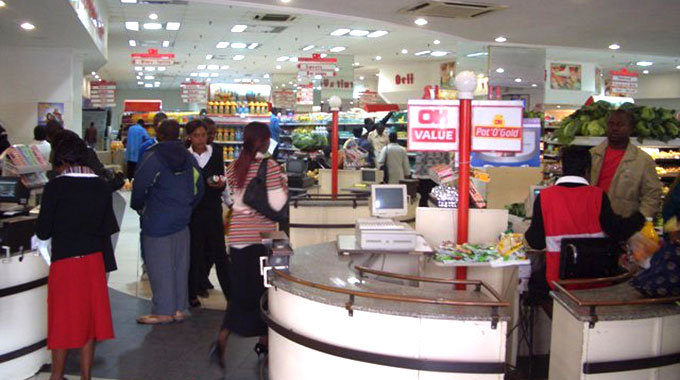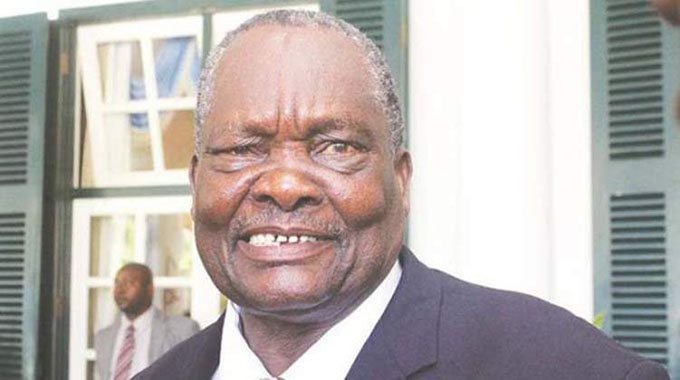Christmas shopping rush as prices stabilise

Blessings Chidakwa and Ivan Zhakata
Zimbabweans are busy shopping for Christmas, taking advantage of bonuses and the stable prices of the last couple of months.
But they are also being prudent by taking advantage of promotions and special offers. They are tending to follow price rather than brand, and generally making sure that they get maximum benefit.
In the informal and public transport sectors, sales tend to be limited to what people can withdraw from banks, with only a few customers willing to pay the premiums still demanded by informal cash traders.
While mobile and plastic money is gaining wider acceptance in the informal and public transport sectors, traders and bus conductors generally demand higher prices equivalent to premiums being charged that day.
This has particularly hit long-distance bus companies.
Fears that prices would rise in the peak festive season have largely been shown to be baseless as retailers and manufacturers continue to push for cash flow and market share, so keeping most prices stable.
The general shift from imports to local products for many items seen accelerating over the last year is still in force.
A survey conducted by The Herald showed supermarket shelves are adequately stocked, with most basic goods available at fair prices.
Zimbabwean vegetables are generally available at the stable prices seen in recent months, but where imported produce is filling a gap, prices are high.
Pardy Chitate, who was doing his shopping at TM Pick ‘n Pay in the city centre, said he was relieved that prices did not go up this festive season.
“Of course, there is a marked increase in the prices over the last year, but at least we can buy something for our families. It has been difficult for most of us, but we can buy something for the festive season since the prices are stable.”
Confederation of Zimbabwe Retailers (CZR) president Mr Denford Mutashu said the retail business had fought the tendency by some to
profiteer by ensuring that there were adequate deliveries.
“We have improved the supply of basic commodities and most shops are fully stocked,” he said. “Many players have taken what is on the market to stock their shops so that they do not run out of stock, which has resulted in the stabilisation of prices in most supermarkets.
“We have also noticed that the customers are out and about buying their goods focusing on basic commodities, though they are buying some stuff which is not basic. Clothing retailers have also stabilised their prices and we hope that the price stabilisation will continue into the New Year.
“We are also trying to engage uniform retailers to stabilise their prices as we enter the Back-to-School time. We are happy to have noted the same (price stabilisation) is being done in other cities like Bulawayo, Masvingo, Gweru and Mutare, among others. We encourage our retailers to continue stabilising the prices so that the consumers can do their shopping at ease.”
Long-distance travellers will likely take chances and travel at the last minute due to cash shortages and the insistence of bus operators on either cash or a steep premium for digital money.
While long-distance operators were lamenting low business, the informal sector was a hive of activity as most traders plying their trade at the Mupedzanhamo Flea Market were recording brisk business, although again within the limits of maximim cash withdrawals since they also put on an extra mark-up, equivalent to the premium by cash traders, for mobile money payments.
The Herald on Thursday last week did the rounds at Mbare Musika long-distance bus terminus, Mupedzanhamo Flea Market, banks and fuel service stations around Harare where people expressed mixed feelings ahead of the Christmas and New Year holidays.
Mrs Tendai Nyarugwe said bus operators wanted cash or high premiums on mobile money.
“Bus operators are accepting plastic money, but the problem is that they are charging an extra cost of at least 40 percent of the cash fare,” she said.
Season Coaches driver Mr Watch Sithole, who plies the Harare-Chitekete route, bemoaned low business.
“There are a few people travelling compared to last year. Business is very low,” he said. “Besides people failing to travel, fuel shortages are giving us a torrid time. While some buses are loading others are stuck in fuel queues and the moment we come here (Mbare rank) from the fuel queue there will be a few passengers left.”
But Motsi Transport bus driver Mr Shepherd Marowa said business was good, as their buses were filling up much earlier than usual.
Mr Tendai Mangenda said cash shortages were a major blow.
“I can only access $300 per week from the bank, and that money is insufficient to cater for my family’s trip to and from my rural home in Gokwe,” he said. “The journey from Harare to Gokwe and back is ranging between $140 and $160. Imagine with my wife and two kids we will have to spend about $600 hard cash on transport alone.”
At Mupedzanhamo Flea Market, the secretary of the informal market, Mr Shadreck Muchachari, said business this year was fairly good.










Comments